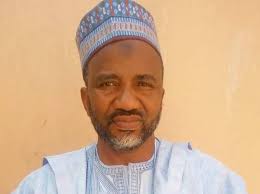By Muhammad Ajah
Cases of child sexual abuse and defilement of underage/teenage girls at schools, at home and in-between are quotidian. The story of the 16-year-old JSS III student of Day Secondary School, Tunga Minna, allegedly impregnated by the vice principal, Muhammad Muhammed Kuyizhi, generated public outcry. Wife of the president, Hajiya Aisha Buhari, took personal interest in the matter. She called on relevant authorities to ensure that justice is done.
Hajiya Aisha contacted the wife of Niger state Governor, Dr. Amina Sani Bello, to take interest in the case before Fati Auna magistrate court. Chief press secretary to the governor’s wife, Aisha Wakaso, hinted that the Child Rights Agency was also monitoring to ensure that due diligence was done. The accused was said to have had sex with the girl three times in his office, thereby contravening sections 19 and 25 of the state Child Rights Act. Recently, Emir of Bauchi, Alhaji Rilwanu Suleman Adamu, called on the state government to separate boys from girls in schools to ensure morality and preserve the future of children.
I must assert that this is just one in hundreds of thousand cases of rapes against underage female citizens. Villages, towns and cities are no different in the records of this social menace. Many little girls die from such wicked acts unnoticed. Unwanted pregnancies and abandoned newborn babies from these heinous and inhuman activities are many.
Sexual abuse, researchers say, is the misuse or wrong use of sexuality whether in action, touching of breast or buttocks, very intimate body contact or actual sexual intercourse with a child. It also alludes to use of words suggestive of intention to engage in any form of sexual activity or practice. The World Health Organization (WHO) estimates that at least one in five of world’s female population has been physically or sexually abused. The threat is increasing among girl children who often have faced problems of gender inequality in addition to the usual problems of unguarded childhood and adolescence manifested in child labour and street hawking.
Street hawking, in turn, is a common form of child labour in developing countries Nigeria inclusive and the female children are mostly victims. According to research, the child on the street is exposed to malnutrition, respiratory tract infection, mental illness and violence including sexual exploitation by men. It is widely believed that the men prefer young girls as sexual partners because they assume they are sexually inexperienced hence are less likely to be infected with sexually transmitted disease (STD).
Furthermore, there has been deliberate discrimination against the girl child especially as regards education with the wrong belief that their marriage deprives the parents and family of such investment. In order not to waste limited resources and to make the girl more relevant to her family, she is given minimal education and the result is low aspiration and limited career and employment opportunities. There are also stress related problems when some of these girls are given to rich families as house helps or sent into street hawking.
Aderinto Adeyinka Abideen in an academic journal article “Gender and Behavour” argues that the special circumstances in which girl children find themselves in urban Nigeria expose them to possible risks of physical, psychological and sexual abuse which in turn increase their vulnerability to early pregnancy, sexually transmitted diseases and AIDS.
The United Nations Children’s Education Fund (UNICEF) treats child labour with great concern in Nigeria, in spite of legislative measures. It defines child labour as work that is mentally, physically, socially or morally dangerous and harmful to children and deprives them of opportunities for schooling and development. Statistics released by International Labour Organization shows that the number of working children under the age of 14 in Nigeria is estimated at 15 million. These jobs include street vendors, beggars, car washers, cobblers, shoe shiners, mechanics, hairdressers, bus conductors and domestic servants and farm hands.
Rachel Harvey, the chief of child protection for UNICEF in Nigeria, says about 80 percent of children are abused again and again with the abused mostly knowing their abusers who tend to be parents, other relatives or male teachers. “Children revealed that they didn’t know where to go. The majority of children don’t know where to seek help,” Harvey said.
An NGO, Muslim Rights Concern (MURIC), through its director, Ishaq Akintola, however, believes that honourable and dignifying child marriage is better than child prostitution which is rampant in Nigerian cities and red light zones. He compared the globalization and promotion of homosexualism, lesbianism and same-sex marriage as a direct challenge to God’s divine order.
Therefore, the view of Reps Ibrahim Garba Mohammed (APC, Kano) is in order. There should be special and stiffer laws against rape in Nigeria. Confirmed rapists should not be allowed to go on bail but be remanded in prison, tried and jailed. After that there should be psychiatric tests on them because for someone to defile a two or three-year-old girl, that person must be insane. Only an insane person can rape an infant.
Furthermore, there has been deliberate discrimination against the girl child especially as regards education with the wrong belief that their marriage deprives the parents and family of such investment
Ajah is an advocate of humanity, peace and good governance in Abuja. E-mail [email protected].



